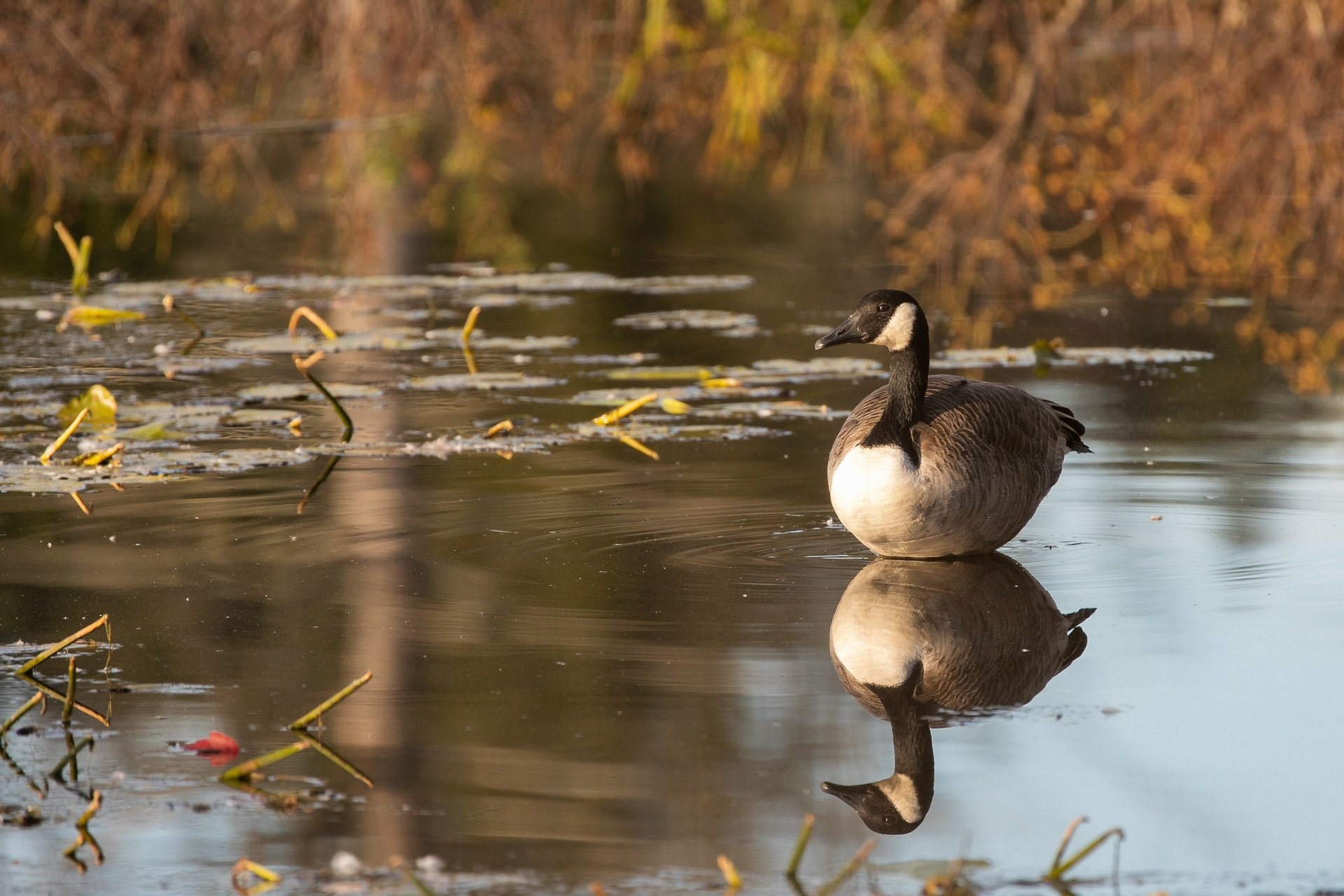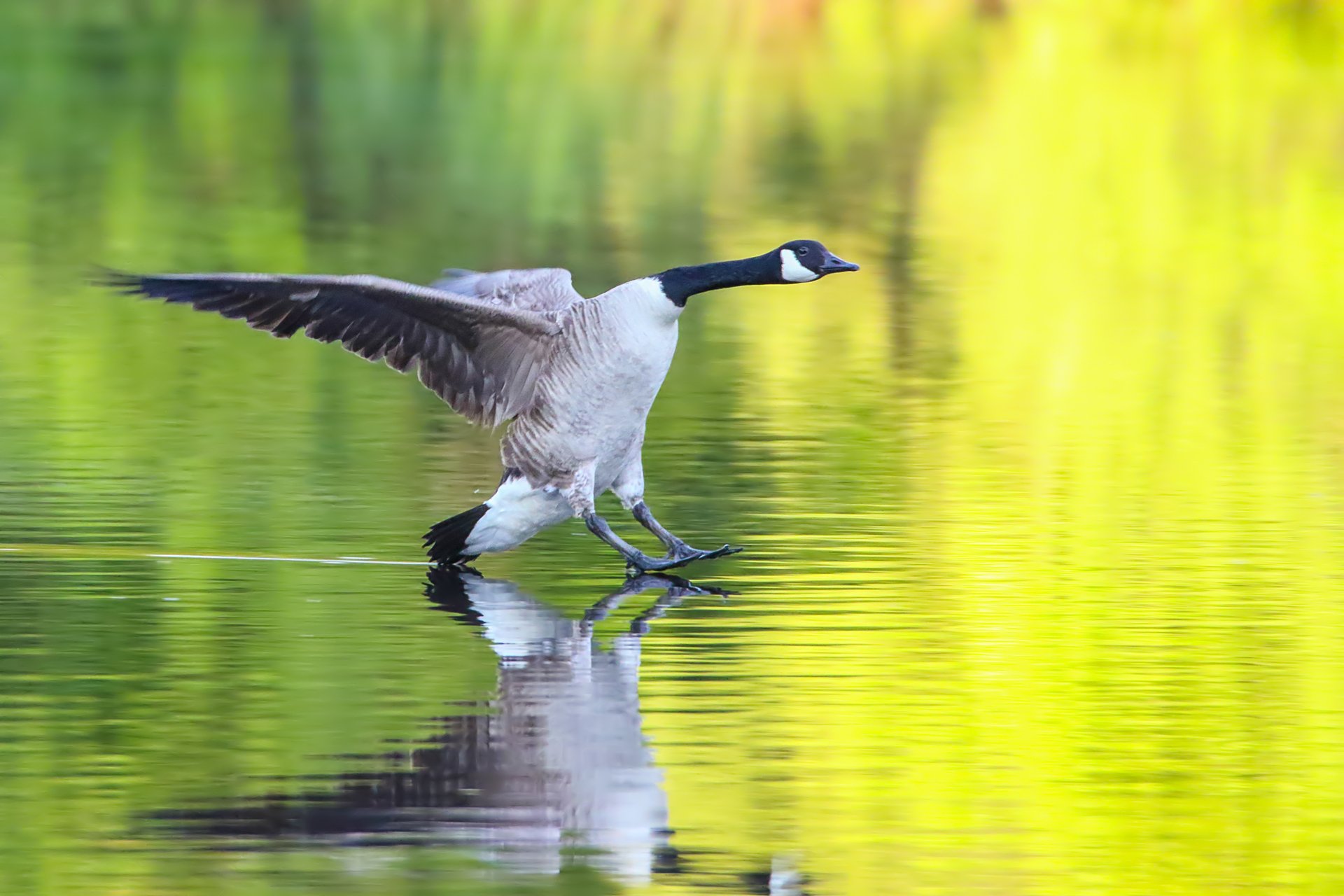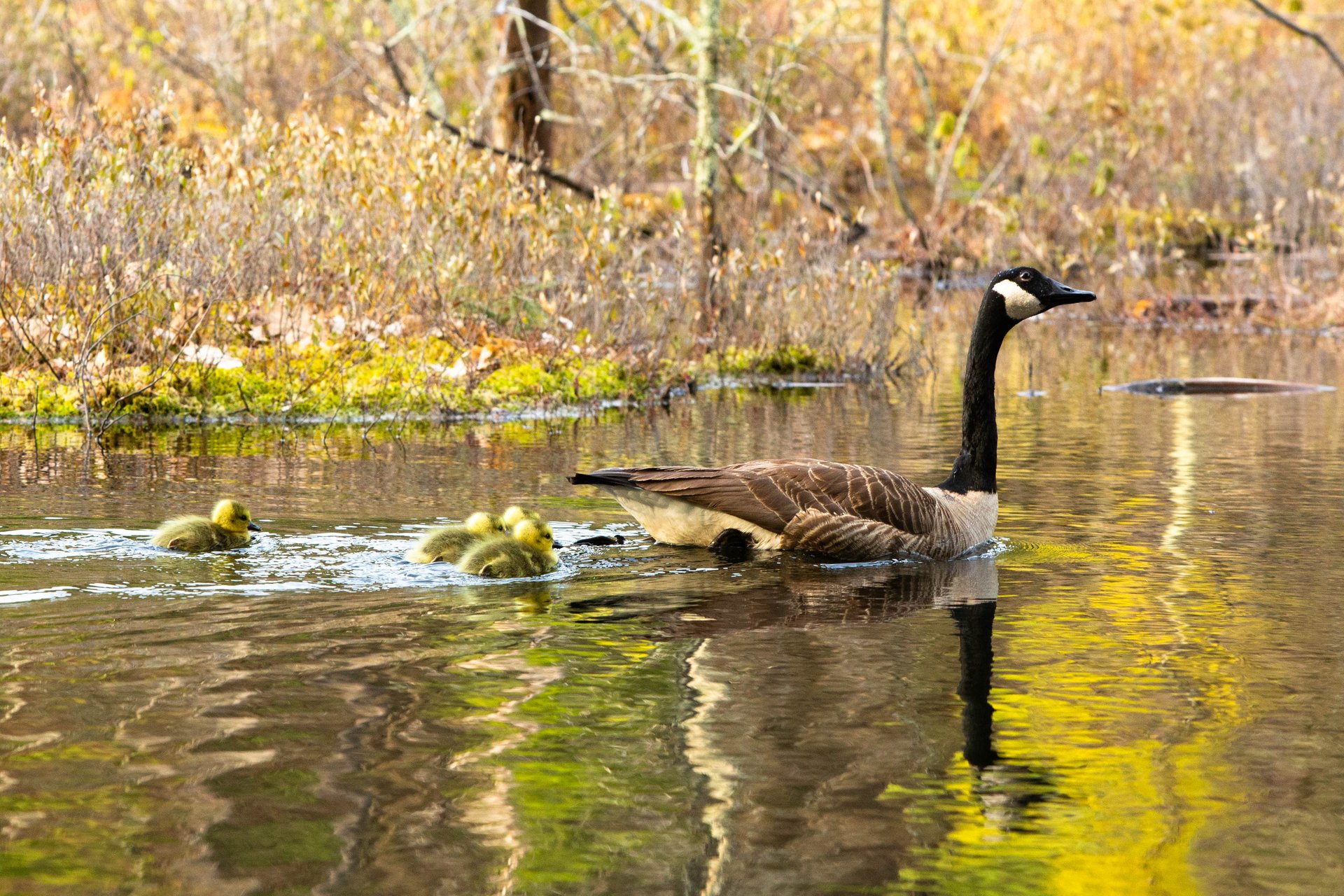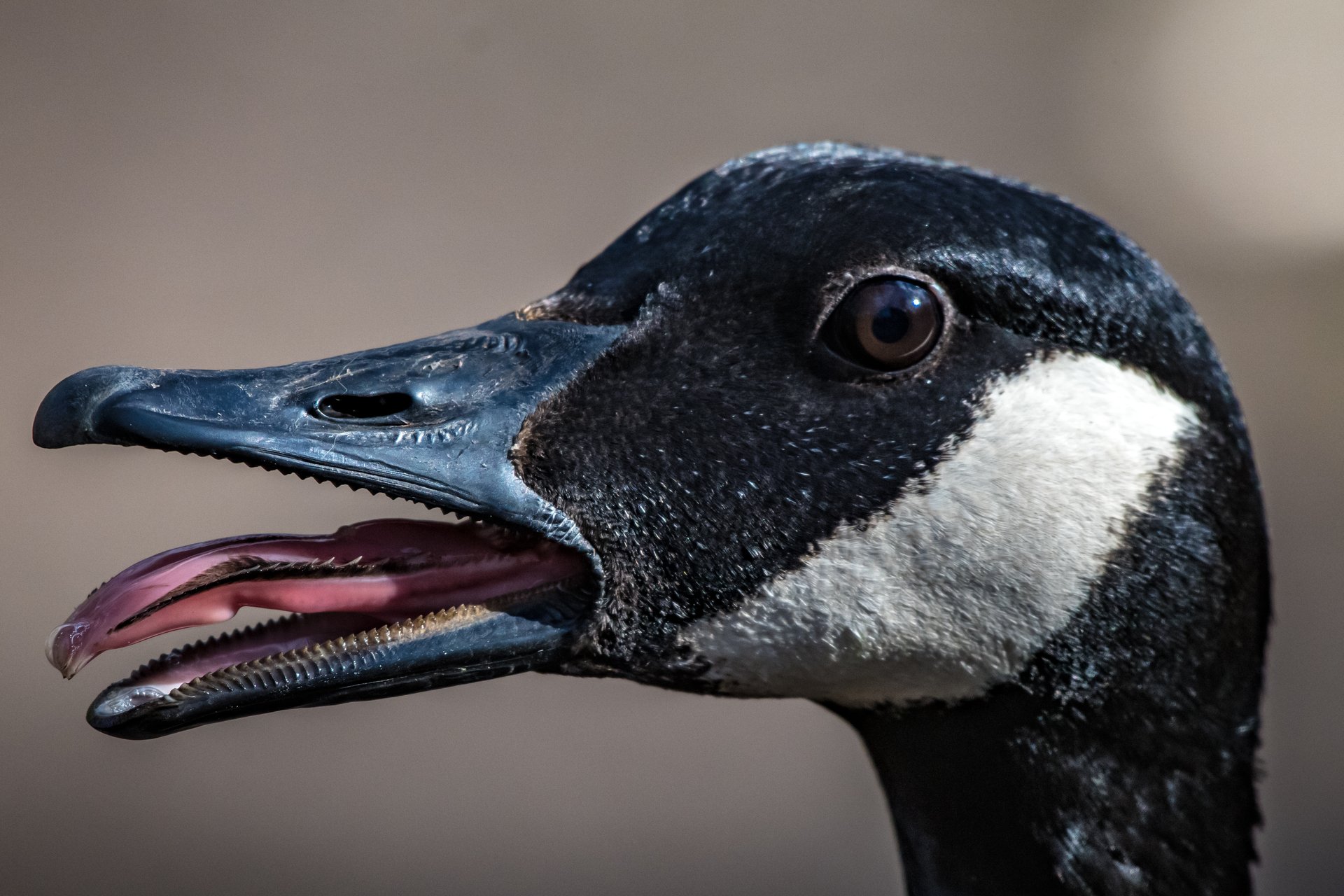Canada Geese
Any Bay State resident living near a baseball field, public park, or body of water larger than the average pothole knows Canada Geese. The loud honking of their large flocks makes them difficult to miss as they pass overhead.
Such a glut of geese was not always the case in Massachusetts, however, since Canada Geese were once a fairly rare breeding species and were seen primarily on migration. For better or for worse, human intervention has radically altered the status of this species within the Bay State.
This is the only species of goose that breeds in Massachusetts, although more may be spotted outside of the breeding season.
How to Identify Canada Geese
Canada Geese (not Canadian Geese!) are familiar to most people with their large brown body, black neck, and head with white cheek patches.
There are a number of subspecies, with the main differences being size and proportions, although some populations are paler than others. Varying sizes can be seen in migration, but Massachusetts breeders are among the larger subspecies.
Canada Geese Life Cycle
The female Canada Goose selects the nest site, usually a slightly elevated spot near the water. The nest is a shallow depression with plant material and lined with down. She lays a total of 4-7 eggs—only one a day—and does not begin to incubate full-time until the clutch is complete.
The male stands guard and may show aggression if the nest is threatened. The goslings hatch after 25-28 days and are born precocial, meaning that they are able to walk, swim, and feed themselves almost immediately after hatching. The young stay with their parents through the first year of life.
Canada Geese Migration
Canada Geese that breed in Massachusetts do not typically migrate, instead moving to areas where the water has not frozen.
What Do Canada Geese Eat?
Canada Geese are almost exclusively herbivorous and feed on grasses, sedges, berries, and grains. Occasionally, they will feed on invertebrates and small fish.
Don’t Feed Canada Geese!
Giving food to waterfowl can create many problems for birds and the environment. Both Mass Audubon and the Massachusetts Division of Fisheries and Wildlife (MDFW) discourage it.
How Mass Audubon is Supporting Birds in Massachusetts
Mass Audubon works at our wildlife sanctuaries and beyond to ensure that the nature of Massachusetts continues to thrive. By scientifically monitoring Massachusetts birdlife, Mass Audubon informs important conservation decisions and launches targeted initiatives to help at-risk species. In addition, fostering healthy habitats, supporting native species, and educating people about the importance of nature conservation is critical to our success. Learn more about our work
How You Can Support Birds in Massachusetts
Mass Audubon supports birds like the Canada Goose every day, but we couldn’t do it without the support of our 160,000+ members.
Help support Canada Geese, and birds like them, by becoming a member today.
Upcoming Bird Programs
Rescue Southern Berkshires Wildlife from Rodenticides
-
Monday, April 28
6:00-7:30pm
Adults
Destination Birding With a Scone: Red Gold Farm
-
Red Gold Farm, Marshfield
-
Tuesday, April 29
8:00-11:00am
Adults
Tuesday Morning Bird Walk
-
Fowl Meadow, Burma Trail, Milton
-
Tuesday, April 29
8:00-9:30am
Adults
Stay Connected
Don't miss a beat on all the ways you can get outdoors, celebrate nature, and get involved.






